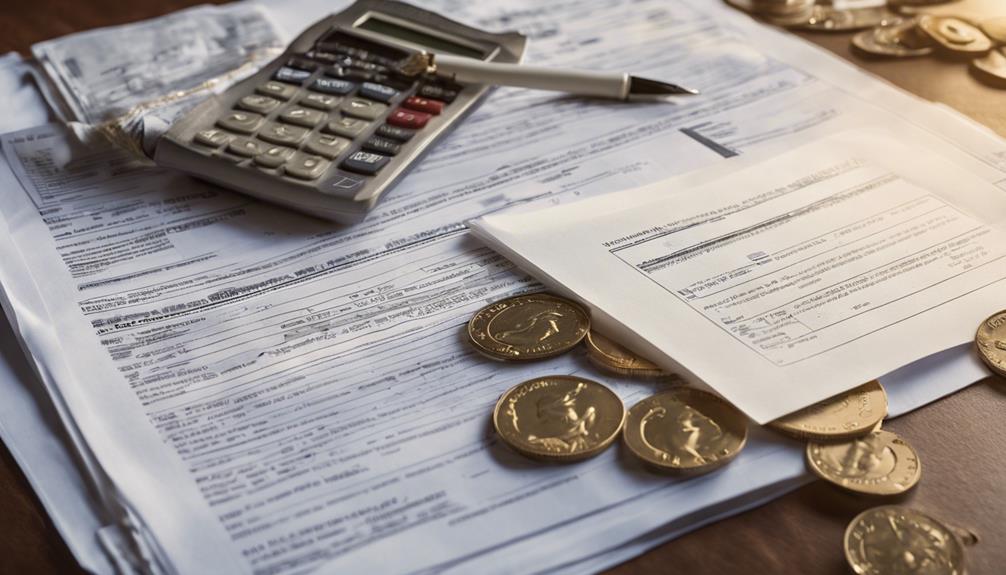If you're a vessel dealer in Washington State, you probably know that the $5,000 bond is more than just a requirement—it's a vital part of your business's credibility. This bond not only protects your customers but also reinforces your commitment to ethical practices. However, understanding the nuances of this bond, from eligibility to compliance, can be a bit overwhelming. What happens if you don't maintain it? The implications can be significant, so let's explore why this bond should be at the forefront of your business strategy.
Understanding the ,000 Bond

When you're navigating the requirements of becoming a vessel dealer, understanding the ,000 bond is crucial. This bond acts as a safeguard, ensuring that you comply with state regulations and fulfill your obligations to customers.
It's not just a formality; it's a legal requirement that protects both you and your clients, providing a financial guarantee for responsible operations and compliance with regulations, as seen in used car dealer bonds.
To obtain the bond, you'll need to work with a surety company. They'll assess your financial stability, credit history, and business practices before issuing the bond. If you're deemed a reliable candidate, you'll pay a premium, typically a percentage of the bond amount. This fee can vary based on your creditworthiness, so maintaining a good credit score can save you money.
Keep in mind that the bond will be in effect as long as you operate as a vessel dealer, and it must be renewed periodically.
Should any claims arise against your bond—due to disputes or failure to comply with regulations—you might be held responsible for repayment. That's why maintaining ethical practices and adhering to the law is essential for your business reputation and financial security.
Understanding the bond process is the first step in ensuring your success as a vessel dealer.
Importance of the Bond
The bond is essential for your success as a vessel dealer, as it not only ensures compliance with state regulations but also builds trust with your customers. When you have this bond in place, it signals to potential buyers that you're serious about conducting business ethically and responsibly. This trust can set you apart in a competitive market.
By securing the vessel dealer bond, you're also protecting yourself from potential financial loss. If a customer faces issues with their purchase, they can file a claim against your bond. This means you have a safety net in place, helping you navigate challenges without jeopardizing your business.
Moreover, having the bond can enhance your professional reputation. It demonstrates your commitment to ethical practices, which can lead to repeat business and referrals. Customers are more likely to choose a dealer who's taken the necessary steps to safeguard their interests.
Eligibility Requirements

To qualify for a vessel dealer bond, you'll need to meet specific eligibility requirements that vary by state. Generally, you must be a licensed vessel dealer in Washington. This means you should have all necessary permits and comply with local regulations governing vessel sales.
You'll also need to provide proof of your business's physical location, which will often require a valid lease or ownership documentation for your dealership premises. Additionally, your business may need to be registered with the Secretary of State and have a federal Employer Identification Number (EIN).
Personal and business credit scores can play a role in your eligibility. Insurers may review these scores to assess risk, so maintaining a good credit history can be advantageous.
In some cases, you might be required to submit a financial statement or other documentation that demonstrates your ability to operate your business responsibly.
Lastly, keep in mind that any past legal issues or violations related to vessel sales could affect your eligibility. Ensuring you meet these requirements will help you secure your vessel dealer bond smoothly.
How to Apply
Applying for a vessel dealer bond involves several straightforward steps that you can follow to ensure a smooth process.
First, gather all necessary documents, including your business license, identification, and any other relevant paperwork. This information will help expedite your application. It's also beneficial to understand the importance of surety bond services, as they can provide invaluable guidance throughout the bonding process.
Next, research bonding companies that specialize in vessel dealer bonds. It's crucial to choose a reputable provider, as they'll guide you through the application process.
Once you've selected a bonding company, complete their application form. Be prepared to answer questions about your business, financial background, and any previous bonding experience.
After submitting your application, the bonding company will conduct a review, which may include a credit check and verification of your financial stability. This step is essential, as it helps determine your eligibility for the bond.
Once approved, you'll receive the bond documents. Make sure to review them carefully to ensure all information is correct.
Costs and Fees

Understanding the costs and fees associated with obtaining a vessel dealer bond is crucial for any business owner. Typically, the bond amount required in Washington State is $5,000. However, the actual cost you'll pay for the bond can vary significantly based on your financial history and the underwriting criteria of the surety company.
This fluctuation is influenced by factors such as your creditworthiness and the reputation of the surety provider, which can affect overall pricing cost variations for bonds.
Most often, you'll pay a premium that's a percentage of the total bond amount. This premium can range from 1% to 15%, depending on your credit score and overall risk assessment. If your credit is strong, expect to pay closer to the lower end of that range. Conversely, if your credit isn't as solid, you might end up on the higher end.
In addition to the premium, there may be additional fees involved, such as application fees or document preparation fees.
Make sure to clarify all potential costs with your surety provider upfront to avoid any surprises. Remember, while securing the bond is an essential step for your business, understanding these financial aspects will help you budget accordingly and ensure you're fully prepared.
Maintaining Compliance
After securing your vessel dealer bond, the next step involves maintaining compliance with state regulations. Staying on top of these requirements is crucial for your business's success and reputation.
First, familiarize yourself with the specific regulations that apply to vessel dealers in your state. This includes licensing, record-keeping, and reporting obligations.
You'll also want to regularly review your bond terms and ensure your business operations align with them. Keep meticulous records of all transactions, including sales, purchases, and any repairs made. This documentation not only supports compliance but also strengthens your credibility with customers.
Additionally, make sure to stay informed about any updates or changes in state laws that could impact your operations. Attend industry workshops or join local dealer associations to network and gain insights.
Establishing a routine for compliance checks can be beneficial; consider setting reminders for renewal dates and reporting deadlines.
Consequences of Non-Compliance

Failing to comply with state regulations can lead to serious consequences for your vessel dealership. First and foremost, you risk hefty fines and penalties that can drain your business finances. These monetary repercussions can add up quickly, especially if you face repeated violations.
Additionally, non-compliance can result in the suspension or revocation of your dealer license. Losing your license means you can't legally operate your business, which could lead to significant losses in revenue. You may also find it challenging to regain your license once it's revoked, as the process can be lengthy and complicated.
Your reputation in the industry is at stake too. Customers rely on dealerships that follow the law, and any negative publicity from non-compliance can drive them away. Furthermore, you might face legal action from customers or suppliers if you're found violating regulations.
Lastly, failure to maintain the necessary bonding requirements can leave you vulnerable to claims, meaning you could end up paying out of pocket for damages.
It's crucial to understand that staying compliant isn't just about avoiding penalties; it's about protecting your business and ensuring its long-term success.
Conclusion
In summary, the WA Vessel Dealer $5,000 Bond is essential for your business's success and compliance. By securing this bond, you're not only protecting your customers but also enhancing your reputation in the market. Remember to meet the eligibility requirements, apply correctly, and maintain compliance to avoid penalties. Investing in this bond shows your commitment to responsible practices, ensuring you thrive in the competitive vessel dealership industry. Don't overlook its importance—it's a vital step for your business!

